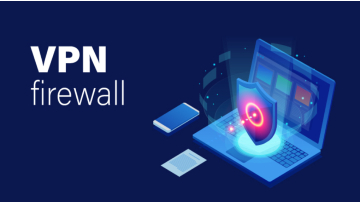
In today's digital age, businesses and individuals are always looking for ways to protect their sensitive data from cyber threats. Popular security tools that often come up in discussions are VPNs and firewalls. While both serve essential functions, they have different purposes and should not be confused with one another.
A Virtual Private Network (VPN) is a secure connection between two devices, usually between a computer and a remote server. VPNs encrypt the data between the two devices, ensuring that no one can intercept or view it, making it an effective tool for remote workers or businesses that need to link to their network from beyond the office. It also provides anonymity and privacy by hiding your IP address and location from websites and online services.
On the other hand, a firewall is a network security system that monitors and controls incoming and outgoing network traffic. Firewalls act as a barrier between a private internal network and the public internet, only allowing traffic that meets predetermined criteria to pass through. They can be hardware or software-based and can be set to block traffic from specific IP addresses or ports.
The main difference between VPNs and firewalls is their purpose. While VPNs focus on protecting data, firewalls focus on protecting a network. Firewalls are designed to prevent unauthorized access to a network and keep malicious traffic out. They can also prevent outgoing traffic that could potentially harm the network. VPNs, on the other hand, protect the data that travels between devices, regardless of whether it is on a secure network or not.
It's important to note that while VPNs and firewalls serve different purposes, they can work together to provide even strict security. Many businesses use VPNs to connect to their network and then use a firewall to control incoming and outgoing traffic. It creates an additional layer of protection against cyber threats.
Both VPNs and firewalls play critical roles in network security, but they have different purposes. VPNs focus on protecting data, while firewalls focus on protecting a network. It's necessary to understand the differences between the two tools and use them appropriately to provide comprehensive protection against cyber threats.







